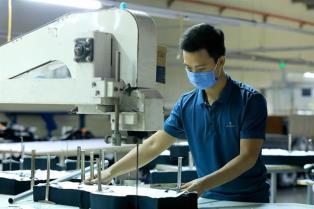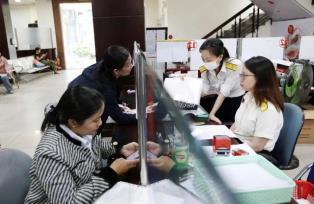The new VAT law, which is expected to provide breakthrough reforms are, instead, is creating new barriers which must be removed to promote the development of the agro-forestry-fishery industry.

HÀ NỘI — Agro-forestry-fishery exporters have voiced growing concern over difficulties in implementing the new Law on Value Added Tax (VAT), which took effect on July 1, saying unclear tax regulations and delayed refunds are straining cash flow and undermining competitiveness.
The new VAT law, expected to deliver breakthrough reforms, is instead creating new barriers that must be removed to promote the development of the agro-forestry-fishery industry, said Đậu Anh Tuấn, Deputy General Secretary of the Vietnam Chamber of Commerce and Industry (VCCI).
Under the new law, several agricultural products such as rice, coffee and raw seafood, previously exempt from VAT, are now subject to a five per cent tax rate.
The Vietnam Food Association said the shift has left rice exporters with significant working capital tied up in pending VAT refunds, slowing their ability to buy paddy from farmers and affecting domestic rice prices.
General Secretary of the Vietnam Association of Seafood Exporters and Producers (VASEP) Nguyễn Hoài Nam said the refund process remains lengthy and complex, weighing heavily on liquidity.
Coffee and tea exporters have also raised concerns over the lack of clarity in defining what constitutes 'preliminary processing.'
The Vietnam Coffee and Cocoa Association said green coffee beans, which are not deeply processed but have high export value, are being unreasonably subjected to a five per cent tax rate.
The association’s Deputy President, Thái Như Hiệp, said coffee exporters often wait up to six months to receive payments from buyers in Europe and the Americas, while VAT refunds take equally long to process, creating a major burden as capital remains locked up.
Deputy President of the Vietnam Timber and Forest Products Association Ngô Sỹ Hoài said the lack of clear guidance on what qualifies as 'preliminary processing' has led to delays in VAT filings and refunds.
He added that thousands of billions of đồng are currently tied up, severely affecting production and exports.
Hoài pointed out three major obstacles under the new VAT law — prolonged tax refunds, inconsistencies and vague definitions of preliminarily processed products, which have led to discretionary interpretation.
He said it is essential to clarify what unprocessed and preliminary processed products are to ensure consistency nationwide, adding that VAT refunds must also be accelerated.
The difficulties are not merely legal or technical issues but also relate to cash flow, competitiveness and the sustainable development of the agricultural sector, according to Đậu Anh Tuấn.
Stressing that the agro-forestry-fishery sector is a strategic pillar of the Vietnamese economy, he urged adjustments to the VAT law to better support the sector’s continued growth. — VNS





